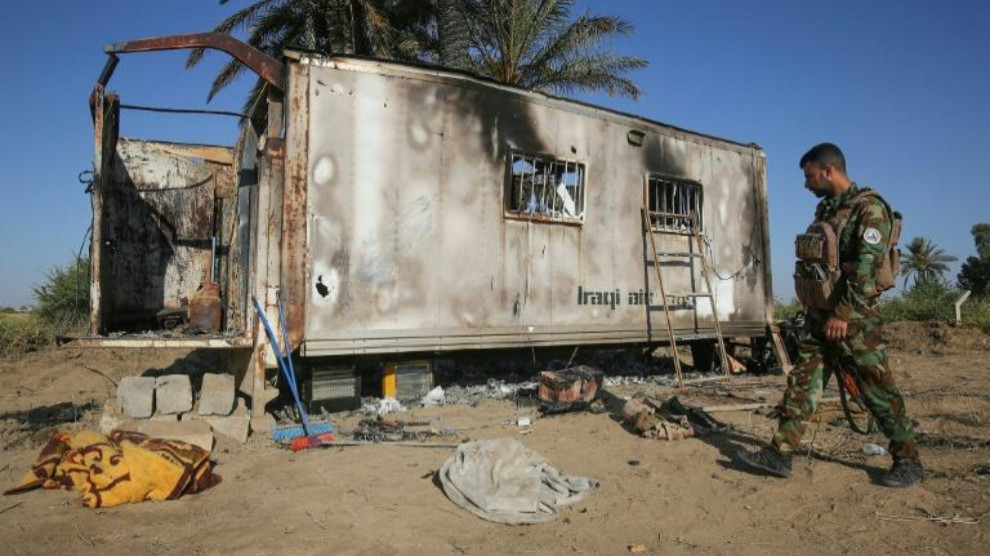ISIS increases its attacks in Kirkuk and Diyala
ISIS mercenaries have escalated their attacks in recent weeks. The attacks reached the highest level in recent years this April.
ISIS mercenaries have escalated their attacks in recent weeks. The attacks reached the highest level in recent years this April.

The attacks by ISIS mercenaries in Kirkuk and Diyala have increased. The attacks in April reached the highest level in recent years.
The most recent attacks took place on Tuesday morning. It was stated that 4 Hashd al-Shaabi members died in an attack targeting the militia in the Taza district of Kirkuk.
Two Hashd al-Shaabi members were injured in the village of Segeran between Daq Haq and Dubiz (Kirkuk).
Attack in Kirkuk tripled
ISIS mercenaries have escalated their attacks in recent weeks. The attacks reached the highest level in recent years this April.
On Saturday, several ISIS cells attacked simultaneously a checkpoint early in the morning. A convoy sent for reinforcement was also attacked. Security forces suffered 10 casualties.
In the area of Kirkuk attacks tripled in March and April. ISIS mercenaries carried out a suicide attack even in front of the intelligence service's headquarters.
In Diyala province, farmers often suffer burning of fields and agricultural settlements. Many farmers say that the 2014 brutality is being revived in their memories.
ISIS cannot return to its past strength
Despite this surge in attacks, experts don't believe that ISIS could regain cities and provinces.
Speaking to AFP, Abu Reghif said that ISIS cannot return to the old "caliphate", declared unilaterally and occupying an area as large as the United Kingdom.
A senior official from the International Coalition noted that ISIS mercenaries have carried out "many low-intensity attacks" in the past few weeks, but "the increase is not material".
The Coalition officer said: "What matters is not how many attacks, but how intense, how complex these attacks are, what kind of equipment and what strategies are used. Most of the attacks we observed are at a primitive level."
Researcher Sam Heller also does not believe that ISIS could return to its 2014 strength. Clearly, said Heller "ISIS is getting more aggressive in recent times, but that doesn't mean they have new skills and equipment."